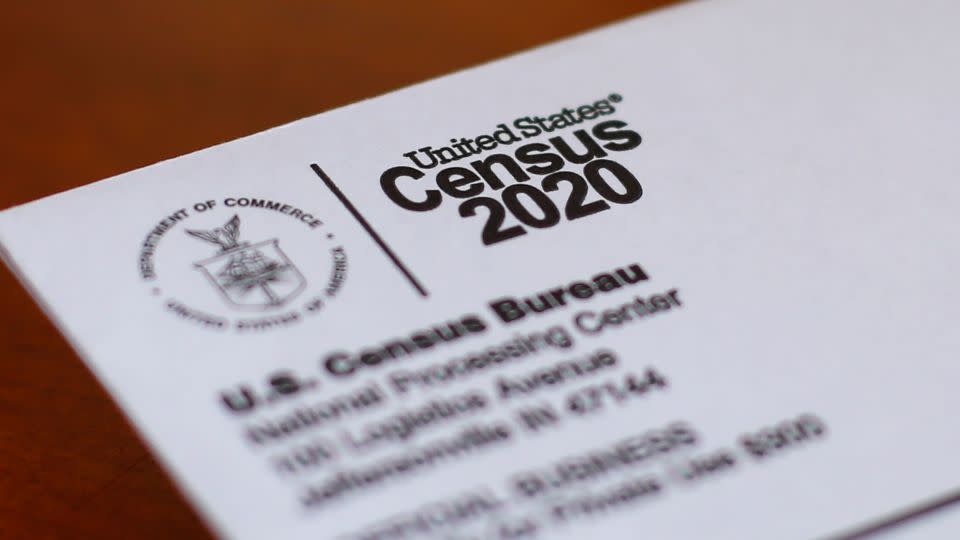US government changing how it asks about people’s race and ethnicity

The Office of Management and Budget on Thursday announced changes to how the federal government asks about people’s race and ethnicity, including in the US census.
Under the new standards, scheduled to publish Friday, the government will collect race and ethnicity information using a single question and will include a new Middle Eastern and North African category as a choice, the Office of Management and Budget said.
The question measuring a respondent’s race or ethnicity will now include seven broad categories: White, Hispanic or Latino, Black or African American, Asian, American Indian or Alaska Native, Middle Eastern or North African, and Native Hawaiian or Pacific Islander. Under the previous standards, Hispanic or Latino ethnicity was measured in a question separate from the one on racial identity.
“Thanks to the hard work of staff across dozens of federal agencies and input from thousands of members of the public, these updated standards will help create more useful, accurate, and up to date federal data on race and ethnicity. These revisions will enhance our ability to compare information and data across federal agencies, and also to understand how well federal programs serve a diverse America,” Karin Orvis, US chief statistician within the Office of Management and Budget, said in a blog post released Thursday.
This is the first time in nearly three decades that the existing standards have been changed and is the result of a years-long effort, CNN previously reported. The Office of Management and Budget sets standards for both the wording of questions and the types of data government agencies and surveys must collect when they are gathering information about Americans’ racial and ethnic identities.
Federal agencies will have 18 months to submit an action plan to the OMB and are expected to implement the new standards within five years, according to an unpublished notice of the new rule.
In a statement, the US Census Bureau commended the new rule and said the agency will begin reviewing and developing plans to implement the changes in censuses and surveys.
“The U.S. Census Bureau commends the scientific integrity and collaboration with our fellow federal statistical agencies and departments throughout this process. These efforts aim to improve federal race and ethnicity statistics and ensure data more accurately reflect the racial and ethnic diversity of the U.S. population,” the agency said.
The nonprofit Arab American Institute, which had advocated for the Middle Eastern and North African category, said Arab Americans “will be made visible” in all federal data due to the revised standards, but some concerns remain. The standards “deny the racial diversity of the Arab American community by excluding Black Arabs and defining MENA without one of its largest populations, Armenian Americans,” the nonprofit said.
“We’ve operated without a checkbox for decades, we will now adjust to having a checkbox that does not accurately represent us and keep pushing for the accurate data we must have,” AAI Executive Director Maya Berry said in a statement.
Arturo Vargas, chief executive officer for the National Association of Latino Elected and Appointed Officials Educational Fund, said the combined race and ethnicity question will improve data collection about Latinos but further work is needed to address subgroups.
“Under the previous standards, many Latinos did not see themselves in the separate question on race and either left the question blank or indicated that they were of ‘Some Other Race’ — a designation not recognized by the agency,” Vargas said in a statement.
Members of the Congressional Asian Pacific American Caucus described the changes as a “historic milestone” for Asian American, Native Hawaiian, and Pacific Islander communities.
“Today’s OMB announcement is no minor bureaucratic change or maneuver; it’s a once-in-a-generation breakthrough,” Caucus Chair Democratic Rep. Judy Chu of California said in a statement.
“As CAPAC has consistently emphasized, grouping our AANHPI communities together often masks the disparities that certain racial or ethnic groups face, including on economic prosperity, health outcomes, home ownership, or educational attainment, and make government programs and services less responsive and effective,” Chu added.
CNN’s Jennifer Agiesta contributed to this report.
For more CNN news and newsletters create an account at CNN.com


